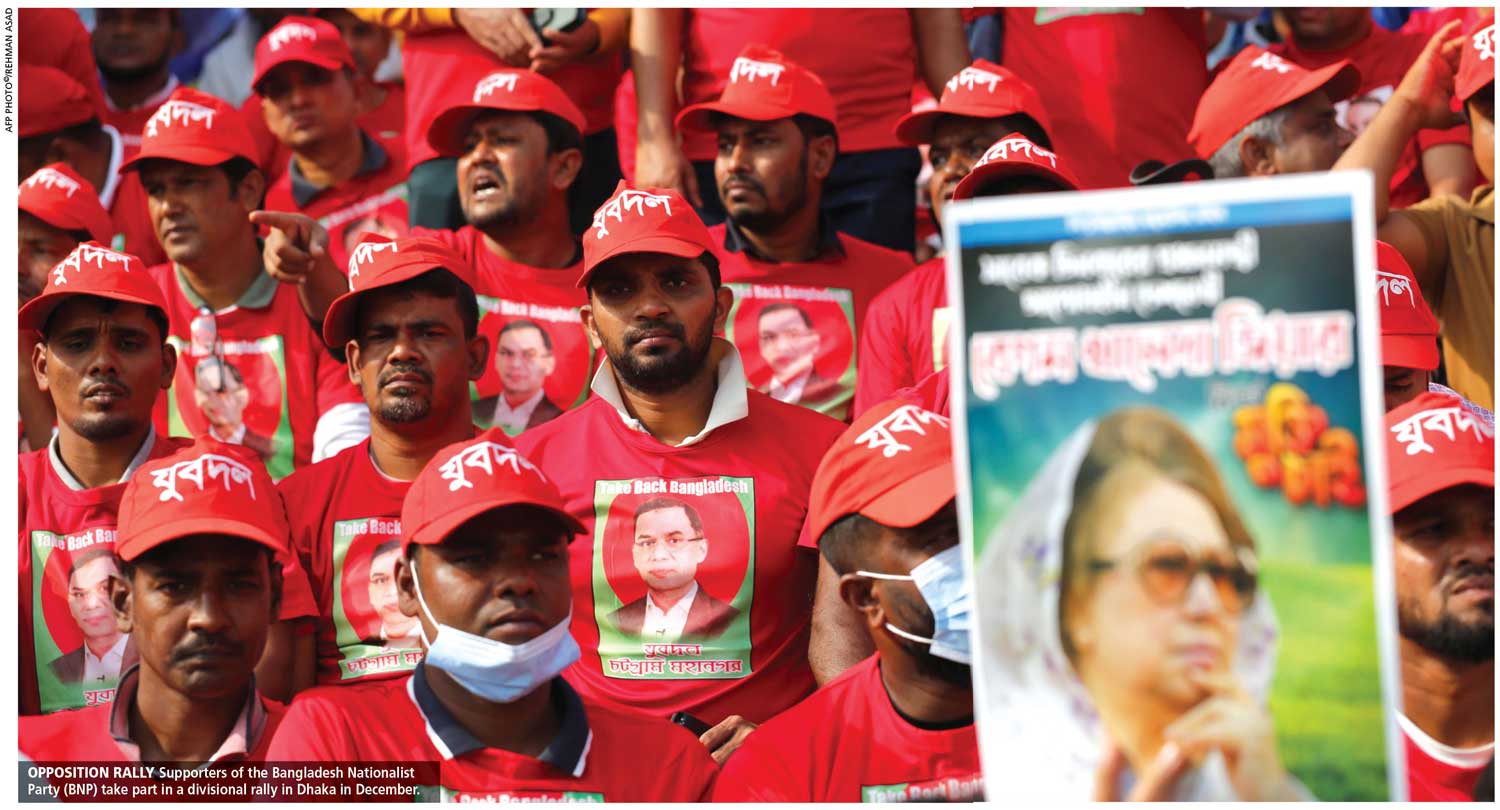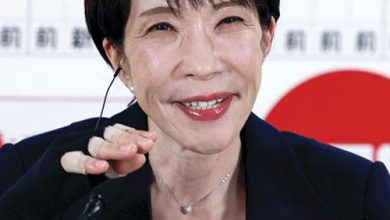Saro Thiruppathy previews the general elections in Bangladesh – and the number of cooks who are trying to stir the pot at the polls
 Bangladesh showed that it’s both a good neighbour and caring friend during those dark days in 2022 when it provided Sri Lanka with millions of dollars in aid and food. So as the 2024 general elections in Bangladesh draw near, this is an opportune time to take a peek at what’s going on in relation to the many interested parties that are showing undue concern in what should be a domestic matter.
Bangladesh showed that it’s both a good neighbour and caring friend during those dark days in 2022 when it provided Sri Lanka with millions of dollars in aid and food. So as the 2024 general elections in Bangladesh draw near, this is an opportune time to take a peek at what’s going on in relation to the many interested parties that are showing undue concern in what should be a domestic matter.
GEOPOLITICAL HOTBED IN SOUTH ASIA
INDIA’S INTEREST Bangladesh and India are currently enjoying a supposedly wonderful relationship, which some call a ‘golden phase.’ New Delhi and Dhaka have been strengthening relations through a variety of agreements in the areas of trade, technology and infrastructure development.
And as India takes over the presidency of the G20 forum from Indonesia, it has invited Bangladesh (even though it’s not a member) to participate in the 2023 G20 summit in New Delhi.
India and Bangladesh share a common border called the Radcliffe Line that extends for 4,096 kilometres. And though Bangladesh shares a common border with Myanmar too, its relations with its giant neighbour to the west are much warmer.
Until recently, the government of Prime Minister Narendra Modi was overtly supportive of Bangladesh’s Awami League, which is headed by Prime Minister Sheikh Hasina.
But following Modi’s visit to the US, there appears to be a slight cooling off.
India’s Minister of External Affairs Dr. S. Jaishankar claimed that the country has been the least involved in the internal affairs of its neighbours over the past nine years; India has gained the ability and skills to conduct relations with not only those governments but also the many political parties in South Asia.
This could have been a dig at the Awami League’s problems with opposition parties.
India’s stance may simply be hogwash for the consumption of the international community but it has nevertheless put a cat among the pigeons in Dhaka.
THE CHINA FACTOR Meanwhile, it’s pertinent to remember that while Bangladesh has been cultivating a warm relationship with India, it has been wisely hedging its bets and strategically building relations with China since 2017.
What’s most important to Dhaka is that Beijing is comfortable with the leadership shown by the Awami League and isn’t pushing for change.
China is Bangladesh’s largest trading partner and its investments in the country are said to be more than US$ 40 billion. Beijing has already invested around 9.75 billion dollars in transportation projects, the ongoing Padma Bridge Rail Link, and the Bangabandhu Tunnel and Dasherkandi Sewage Treatment Plant.
Through these initiatives, China is expanding its foot-print in the Indo-Pacific region.
It is also the largest source of foreign direct investment (FDI) in Bangladesh and provided gross inflows to the tune of US$ 940 million in 2021/22. And for the sake of improved bilateral trade relations, Beijing has granted duty free facilities for Bangladeshi products.
Meanwhile, Bangladesh’s military partnership with China has also been growing steadily over the past five years; it is now Beijing’s second largest buyer of arms – its purchases accounted for about 17 percent of China’s military exports between 2016 and 2020. Pakistan follows in third place.
While all this is happening, Japan has also entered its name in the book of goodwill and is busy building a deep-sea port in southern Bangladesh. The Matarbari Port is thought to be a strategic victory for India as the Japanese backed facility has eliminated the possibility of China building a port in the vicinity.
India and Japan are members of the gang of four known as Quad.
The geopolitical importance of Matarbari was evident when the Japan International Cooperation Agency (JICA) agreed to extend a fresh infrastructure construction loan to Bangladesh for 165 billion yen, in addition to the 38.8 billion yen that had already been pledged.
US HEGEMONY But the story doesn’t end there.
No geopolitical interference would be complete without the hand of the paragon of democratic virtue stirring the already murky waters. Premier Hasina has even alleged that the promoter of regime change is trying to do the same in Bangladesh.
The US is very interested in the lead up to the Bangladeshi general elections. And its Secretary of State Antony Blinken says that America will deny visas to any Bangladeshi who the US believes has been responsible for or is complicit in undermining the democratic election process.
All this anxiety in the international arena is due to Bangladesh’s close relationship with China. In a feeble attempt to counter this, Washington invited Dhaka to join its Indo-Pacific Strategy.
However, Beijing warned Bangladesh that relations between the two nations would be harmed if the latter joins Quad. Russia is also concerned about possible US hegemonic ambitions in Bangladesh, and its unrelenting efforts to try and influence Dhaka’s domestic process.
This content is available for subscribers only.





